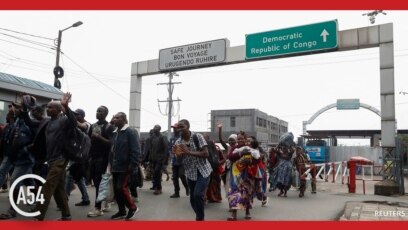Introduction
Rwanda, often referred to as the ‘Land of a Thousand Hills’, has emerged as a significant player in Africa, attracting attention due to its robust economic growth, tourism potential, and progressive policies. With a stable government and a growing focus on sustainability, Rwanda is positioning itself as a model for development within the region. This exploration looks at the latest developments in Rwanda, reflecting its relevance in today’s global landscape, particularly regarding tourism, innovation, and investment.
Economic Developments
In recent years, Rwanda has experienced remarkable economic growth, with an average annual growth rate of 8% over the last decade. The government’s Vision 2050 plan aims to turn Rwanda into a middle-income country by focusing on sectors such as agriculture, tourism, and information technology. Major multinational companies are increasingly recognizing Rwanda’s favorable business environment, with initiatives promoting entrepreneurship and foreign direct investment. In fact, the 2023 International Monetary Fund (IMF) report projected Rwanda’s economy to grow by 7% in the coming year, despite global economic challenges.
Tourism Boom
Tourism has become a cornerstone of Rwanda’s economy, particularly eco-tourism, with its famous mountain gorillas drawing thousands of visitors each year to Volcanoes National Park. Additionally, the easing of travel restrictions and the launch of the ‘Visit Rwanda’ campaign have made the destination more accessible. The tourism sector is expected to generate substantial revenue, with the Rwanda Development Board reporting significant increases in visitor numbers and tourism-related spending in 2023. The country is also promoting cultural tourism, showcasing its rich heritage and history through various festivals and events.
Social Progress and Challenges
Rwanda is not only focusing on economic growth, but there are also efforts to promote social progress. The government is investing in education and health services, aiming to improve the quality of life for its citizens. However, challenges remain, particularly regarding human rights concerns and the need for political freedoms. International observers continue to monitor the situation, urging the Rwandan government to ensure that its development is inclusive and considers the voices of all stakeholders.
Conclusion
Rwanda is carving out a unique identity on the African continent, marked by its economic developments and efforts towards sustainable tourism. As it continues to attract international interest, the country presents numerous opportunities for business and travel. However, balancing growth with social equity and political freedoms will be crucial for Rwanda’s future trajectory. For readers, Rwanda’s evolution offers a compelling case study of resilience and potential in post-conflict recovery and development.
